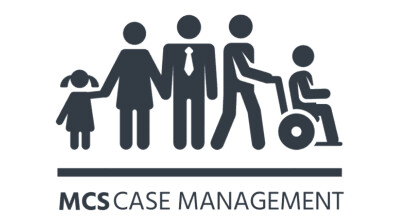High Court: Personal injuries claim against racehorse trainer dismissed

The High Court has dismissed a claim by the former employee of a racehorse trainer who injured his back at work, finding that liability could not be established simply because the incident happened on the trainer’s premises and/or while the appellant was working for him.

About this case:
- Citation:[2025] IEHC 364
- Judgment:
- Court:High Court
- Judge:Mr Justice Michael Twomey
Delivering judgment for the High Court, Mr Justice Michael Twomey observed that “unfortunate everyday mishaps do not revert from being an accident (where no one is to blame) into to an ‘accident at work’, for which the employer is liable, just because they occur on the premises of someone with insurance (or on the premises of someone with the means to pay compensation)”.
Background
The appellant claimed that in March 2016, he injured his back while emptying a wheelbarrow on an upward incline of soiled hay while at work at Rossmore Cottage Stables as a stable hand.
The appellant had been tasked with filling 10–15 wheelbarrows of soiled hay from the horseboxes and then to empty those wheelbarrows into a dungstead each day. He was asked to throw loose soiled hay from the floor of the dungstead, with a fork or shovel, onto the higher mounds of soiled hay to keep the floor of the dungstead clean, enabling the wheelbarrow to be tipped out on a flat surface.
The appellant claimed that he was entitled to damages from the respondent when he suffered a back spasm while emptying the wheelbarrow, alleging inter alia an unsafe system of work.
The case came before the High Court on appeal from the Circuit Court.
The High Court
Mr Justice Twomey considered the cases of Nemeth v Topaz Energy Group Limited [2021] IECA 252 and Rosbeg Partners v L.K. Shields [2018] 2 I.R. 811, noting that the courts should approach personal injury claims by applying “common sense and some degree of scepticism” and that when dealing with expert evidence from engineers on “ordinary everyday matters with which most people would be expected to be familiar”, the court can bring “its own common sense to bear”.
In that regard, the judge was satisfied that the court did not need expert engineering evidence on emptying a wheelbarrow and could bring common sense to bear on that everyday activity.
Mr Justice Twomey further considered that having regard to Nemeth, an employer is not an insurer of an employee from injury resulting from the employee doing an everyday task, simply because he or she happened to do that task at work.
The court explained: “An unfortunate everyday mishap does not become someone’s fault because it happens on the premises of an employer with insurance (or on the premises of a person with means). The test remains has the employer failed to exercise reasonable care?”
The court observed that the appellant had not specifically claimed in his pleadings that his injury resulted from emptying the wheelbarrow on an incline and that the reference to an incline only surfaced six years later, following the issuing of his expert engineer’s report which included photographs of the dungstead seven years after the incident, at a time when it was operated by a different racehorse trainer.
Mr Justice Twomey considered that the appellant’s claim that he rolled a wheelbarrow up an incline composed of soft density material in order to empty it defied common sense and being so unorthodox, it should have been “front and centre of his claim”.
In those circumstances, the court did not find it credible that the appellant, who had plenty of experience using wheelbarrows and emptying out soiled hay from horseboxes in his own home, had operated the wheelbarrow in the manner suggested and that his recollection of events had become “subtly and unwittingly adjusted”.
Furthermore, Mr Justice Twomey observed that there were inconsistencies between the appellant’s version of events and what was recorded by his treating physicians, which suggested that he had been injured from a fall while looking after a horse.
The judge was also satisfied that even if the court was wrong in relation to the incident, which it determined to have been an “everyday mishap while doing the everyday task of emptying a wheelbarrow in the usual manner, i.e. for a flat surface”, then the appellant’s employer would still have no liability where it was the appellant’s task to ensure that the concrete floor was clear, so that a flat surface was available from which to empty the wheelbarrow.
Having regard to the relevant jurisprudence, the High Court determined that the appellant had not pleaded his case with sufficient particularity or precision in order to satisfy the provisions of the Civil Liability and Courts Act 2004, resulting in his employer having no idea that the key issue in the trial would be that the system of work alleged to be unsafe involved the appellant emptying a wheelbarrow in an unorthodox fashion.
The court stated that if it had not found that on the facts, the appellant had not emptied the wheelbarrow on an incline, it would nonetheless have found that the appellant was not permitted to make that claim at hearing as it was never his pleaded case.
Conclusion
Accordingly, the High Court dismissed the appellant’s claim and indicated its view that the costs of the proceedings in the High Court and Circuit Court should be awarded against the appellant.
Lawless v Keatley [2025] IEHC 364










